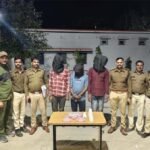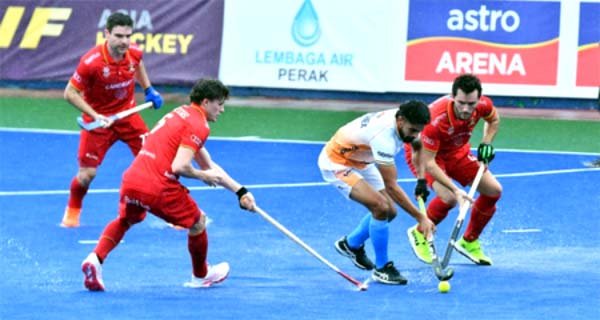New Delhi, May 6 (UNI) The Supreme Court on Tuesday began the final hearing on a series of appeals related to the 2002 Godhra train burning case, rejecting the objection raised by some convicts that the matter must be heard by a three-judge bench since it involved death penalty sentences.
A two-judge bench comprising Justices J.K. Maheshwari and Aravind Kumar proceeded with the hearing after clarifying that the present appeals could be adjudicated by a two-judge bench under prevailing legal provisions.
Senior Advocate Sanjay Hegde, appearing for convicts Abdul Rehman Dhantiya and another, argued that in light of the Supreme Court’s Constitution Bench decision in Mohd Arif @ Ashfaq v. Registrar, Supreme Court of India (2014), any case involving confirmation or award of the death sentence must be heard by a bench of at least three judges.
He contended that if the present bench were to consider re-imposing the death penalty on any of the 11 convicts whose capital sentences were commuted to life imprisonment by the Gujarat High Court in 2017, the matter would need to be re-argued before a larger bench.
However, the bench dismissed this contention, holding that the 2014 judgment and Supreme Court Rules require a three-judge bench only when the High Court has confirmed or newly awarded the death penalty.
“The Gujarat High Court, in the present case, commuted the death penalty awarded by the trial court and did not confirm it. Therefore, a two-judge bench can hear the appeals,” Justice Maheshwari said. “The objection is repelled,” the bench noted, and proceeded with the case.
The appeals being heard include those filed by the Gujarat government challenging the commutation of death sentences for 11 convicts to life imprisonment, as well as petitions by several convicts challenging the High Court’s decision to uphold their convictions.
On February 27, 2002, 59 people, mostly karsevaks, were killed when coach S-6 of the Sabarmati Express was set on fire at Godhra, triggering widespread riots in Gujarat.
During today’s proceedings, Senior Advocate Hegde made detailed submissions regarding the role of convict Abdul Rehman Dhantiya. He presented a map of the Godhra railway station and the Sabarmati Express, aiming to clarify the sequence of events from the chain-pulling incident to the outbreak of the fire.
The bench intervened to ensure that arguments remained focused on Dhantiya’s specific role in the broader conspiracy.
Hegde highlighted that the prosecution alleged a conspiracy hatched at the Aman Guest House, implicating Dhantiya and others in orchestrating the attack.
He also emphasized that there was no direct evidence showing Dhantiya participated in setting the fire or obstructing firefighting efforts.
According to him, Dhantiya was found at his residence about a kilometer away from the site of the incident and there was no concrete proof of his involvement in instigating the mob or engaging in violence.
The prosecution, however, countered that witness testimonies linked Dhantiya to the crowd involved in stone pelting and damaging a firefighting vehicle.
They defended delays in recording statements due to the chaotic situation post-incident, asserting that their case was backed by forensic and documentary evidence, including the presence of petrol residue on recovered materials.
Justice Maheshwari instructed Hegde to submit a detailed chart summarising evidence, trial court findings, and defense arguments specifically related to Dhantiya. The bench made it clear that the charges against him primarily concern allegations of stone pelting and participation in the mob, not direct involvement in arson.
The hearing will continue on Wednesday, with the bench set to examine the evidence and arguments related to other convicts as well.











